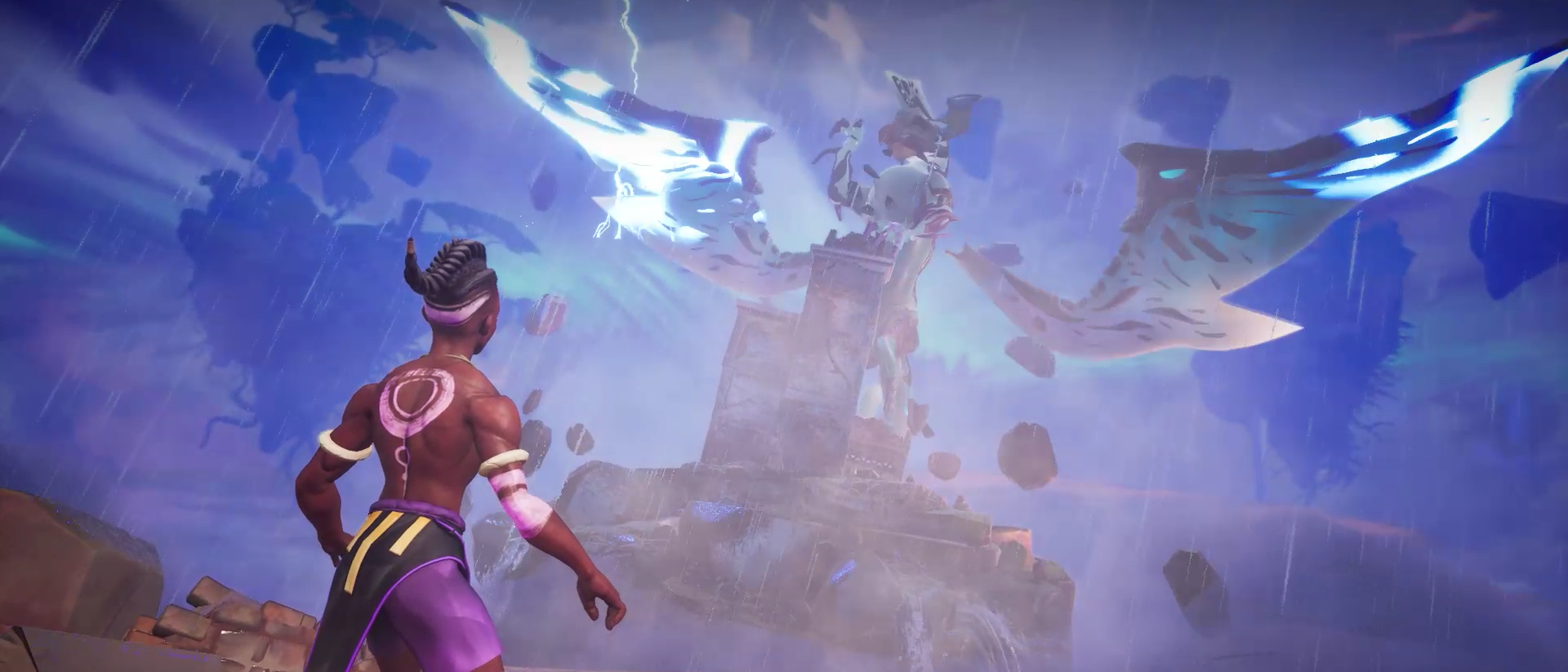Laptop Mag Verdict
Tales of Kenzera: ZAU is a thrilling, emotional coming-of-age story through a stunning world rooted in Bantu mythology. From its unique combat mechanics to the spectacular soundtrack and sprawling map, there’s a lot to love about this debut hit from Surgent Studios.
Pros
- +
Fantastic music
- +
Challenging, but fair
- +
Beautiful graphics
- +
Short and sweet
Cons
- -
Aiming is finicky with controllers on PC
Why you can trust Laptop Mag
Tales of Kenzera: ZAU is a thrilling, meaningful journey through a vibrant world alive with Bantu mythology. It combines fast-paced platformer action with a story that’s brimming with emotion, from grief to humor. You’re sure to get lost in the world of Kenzera and love every moment of it. It’s perfect for fans of Ori and the Blind Forest.
After exploring the world of Tales of Kenzera and experiencing its touching parallel storylines, I can confidently say this is a platformer you don’t want to miss. It has everything fans of the metroidvania genre love, like challenging side-scrolling gymnastics, stunning backdrops, and crunchy combat. A few difficulty levels make Tales of Kenzera accessible for those who are new to platformers, too.
I played Tales of Kenzera on PC using the Endgame Gear KB65HE keyboard and an OP1 8k gaming mouse. (If you’re looking for a new setup to try it out on, take a look at our guide to the best gaming laptops.)
Let’s dive into what makes Tales of Kenzera: ZAU a hit platformer for new players and veterans of the genre alike.
Tales of Kenzera: ZAU: Platforms and price
Starting April 23, 2024, Tales of Kenzera: ZAU will be available on PC, Nintendo Switch, Xbox Series X/S, and PS5. You can add it to your library for just $19.99, a refreshing price in a world of $70+ titles. The estimated play time is also short and sweet, ranging from about 8 to 10 hours for the main story or around 12 hours for completionists.
If you are playing on a PC, you’ll need a Windows 10 system running, at minimum, an Intel Core i7 7700 or AMD Ryzen 2600 CPU, 8GB of RAM, Nvidia GeForce GTX 1060 6GB or AMD RX 580 8GB GPU, and 30GB of available storage. Tales of Kenzera: ZAU is not currently available for Mac or Linux.
Tales of Kenzera: ZAU: Story
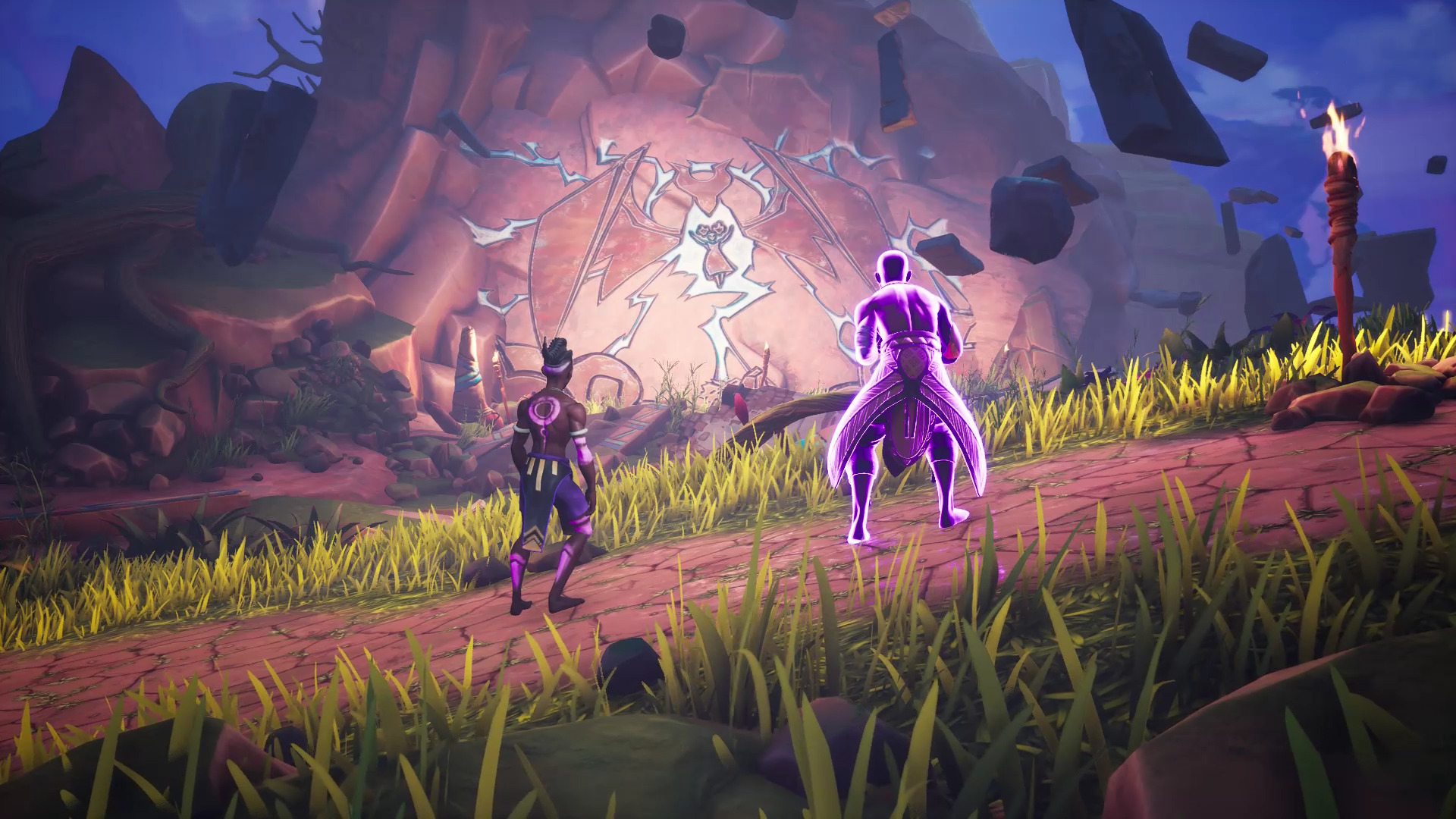
Tales of Kenzera: ZAU follows two parallel stories about grief, coming of age, and the turbulent nature of healing. First, we meet Zuberi, a young man living in the futuristic city of Amani, who is grappling with his father's death. His mother gives him a book his father left for him, which tells the story of the warrior shaman Zau.
Players take on the role of Zau as he embarks on a quest for Kalunga, the god of death. Like Zuberi, Zau recently lost his father. He’s not ready to let him go, though, and makes a deal with Kalunga to bring his father back to life in exchange for capturing three lost, powerful spirits throughout the land of Kenzera. Along the way, Zau travels through a collection of unique biomes, from the sunny Ikakarumbian Highlands to the land of death itself.
The way Tales of Kenzera uses platformer mechanics to tell a deeply emotional story is what really makes it stand out in the genre. When you run into challenges in a platformer, you have no choice but to simply keep trying and find a way to continue moving forward. That’s exactly what Zau and Zuberi are trying to do as they work through their grief.
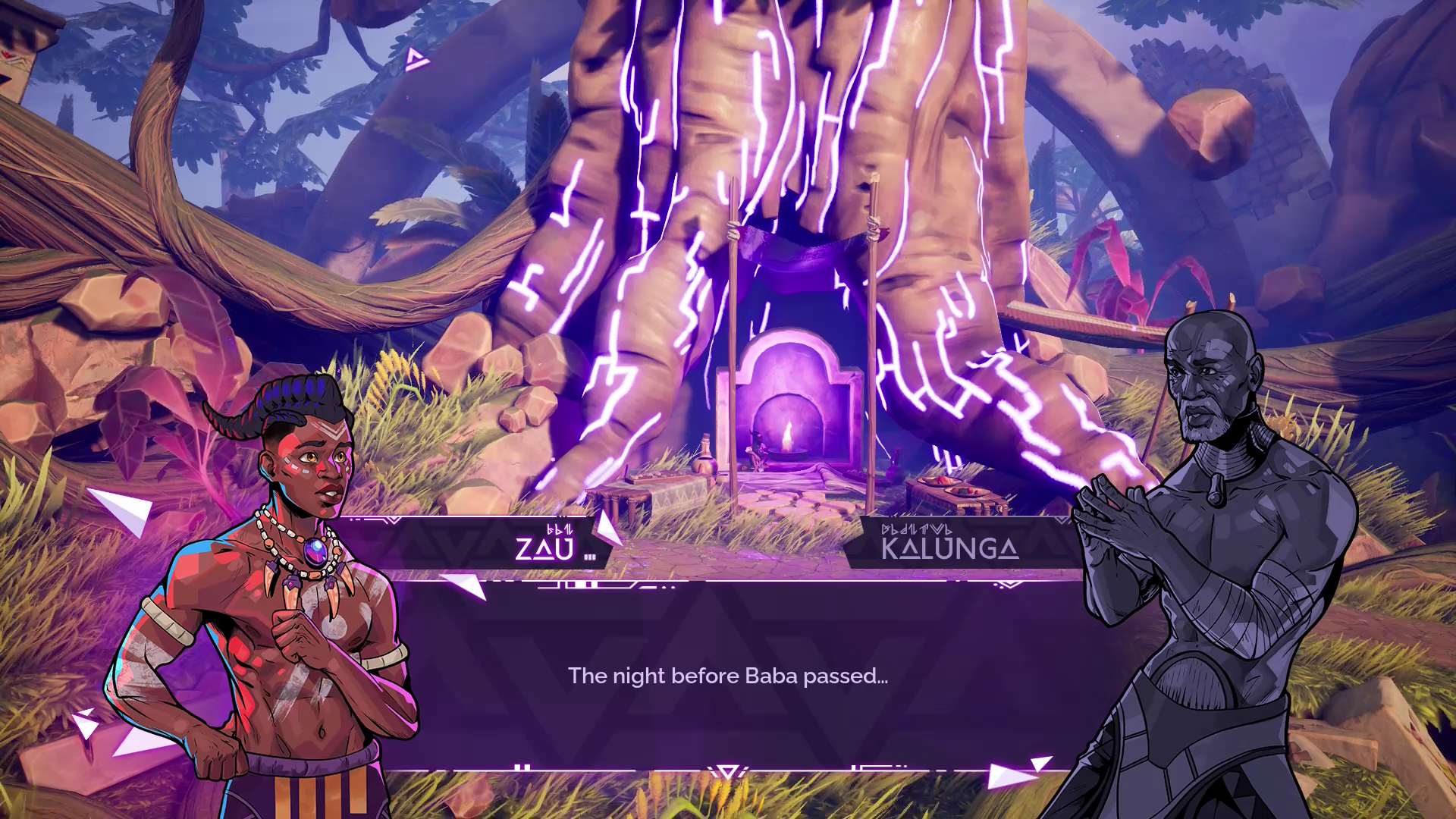
While the world of Kenzera is different from our own, it is full of visual and thematic references to stories from the Bantu peoples of southern Africa. Some of the creatures and bosses are even pulled directly from Bantu tales, like the first boss, Impundulu, which comes from Zulu folklore. The story-within-a-story narrative of Tales of Kenzera is also a tribute to its origins in the cultures of southern and western Africa, which have a rich history of oral storytelling.
The story of Tales of Kenzera is inspired by the real-life experiences of Abubakar Salim, founder of Surgent Studios, who many will recognize from his performance as Father in Raised By Wolves on Max (formerly HBO Max). He was also the voice actor behind Bayek in Assassin’s Creed: Origins, and will soon be on screen again as Alyn of Hull in season two of House of the Dragon on Max.
Tales of Kenzera: ZAU: Gameplay
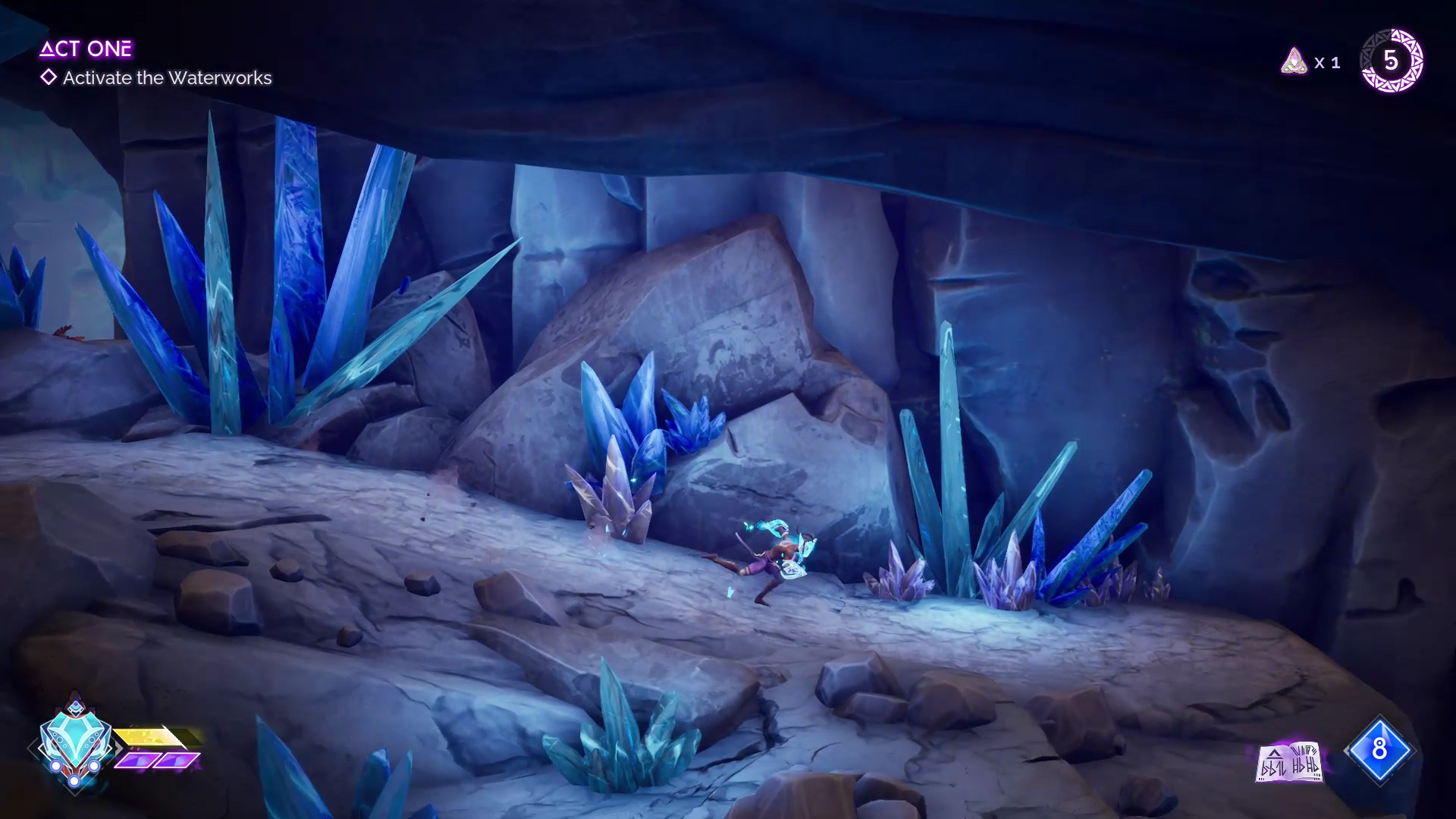
Tales of Kenzera: ZAU is, first and foremost, a platformer. If you’ve played games like Ori and the Blind Forest, the Prince of Persia series, or classics like Castlevania, you’ll be right at home. Tales of Kenzera offers more parkour challenges than some other titles in the genre, though.
It also emphasizes exploration using map design that encourages you to return to earlier areas, which makes the game fun for platformer newbies or players who are more used to RPG titles.
Thanks to a distinctive spirit mask mechanic, fans of platformer combat will have a ball with this game. With the press of a single button, you can swap between two spirit masks — sun and moon — to adapt to different combat situations.
Once you start learning creative ways to use the abilities of each mask, fighting gets really fun. For instance, I had a bit of an epiphany during the first boss battle when I realized I could use the Bamba’s Stone ability from the Mask of the Moon to freeze Impundulu and buy myself a valuable second or two to get some extra ranged shots in.
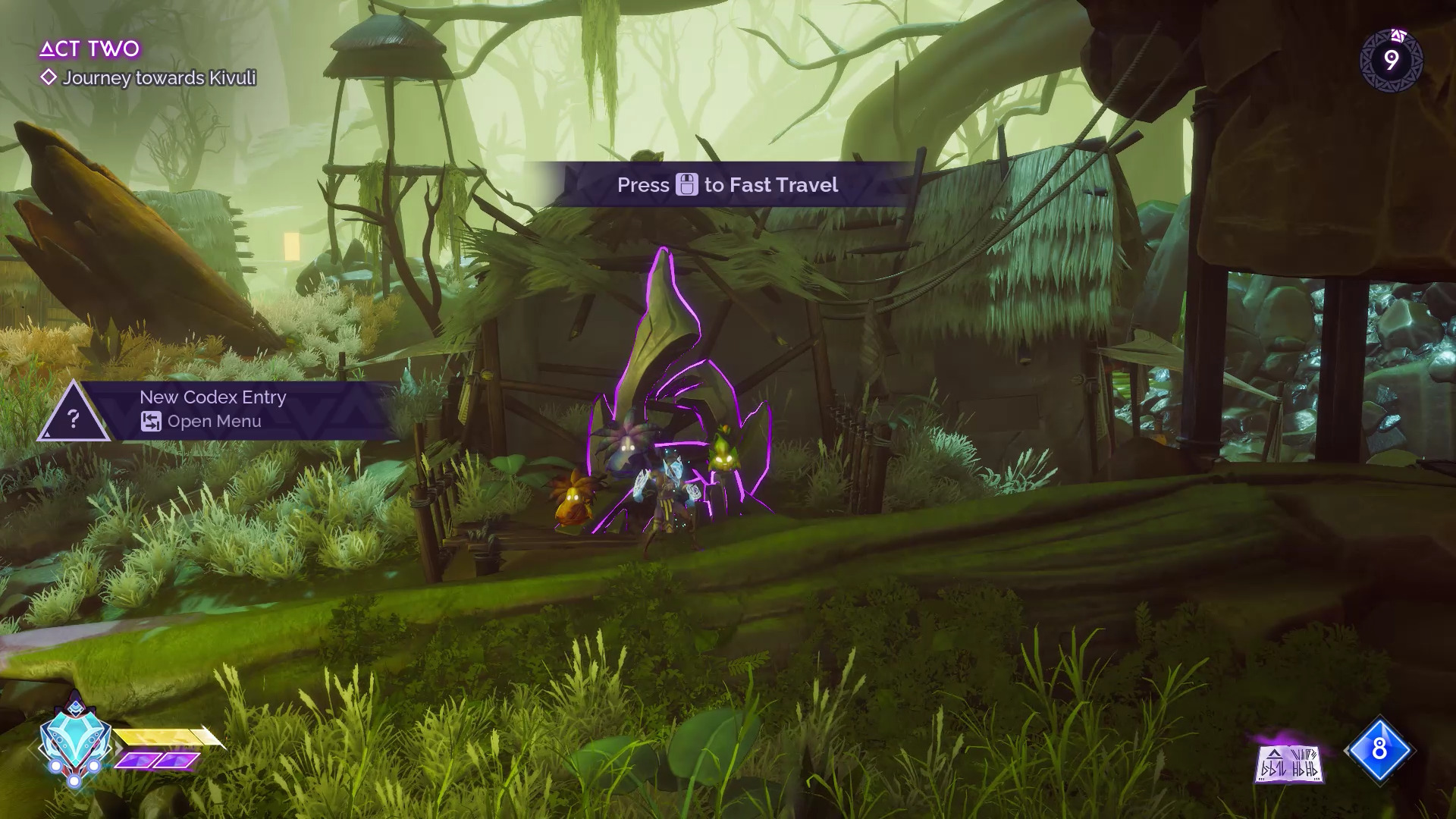
Outside combat, the gameplay is a blast thanks to snappy in-game physics and phenomenal music by composer Nainita Desai. The rhythm of jumping and dodging felt natural to dive into and I never found myself frantically button mashing while trying to activate special abilities.
The healing system is also fair and balanced. Your healing charges refill when you deal damage to enemies. If you die, the game will return you to the most recent autosave point, which are frequent enough that dying was never overly frustrating.
Tales of Kenzera: ZAU: World and graphics
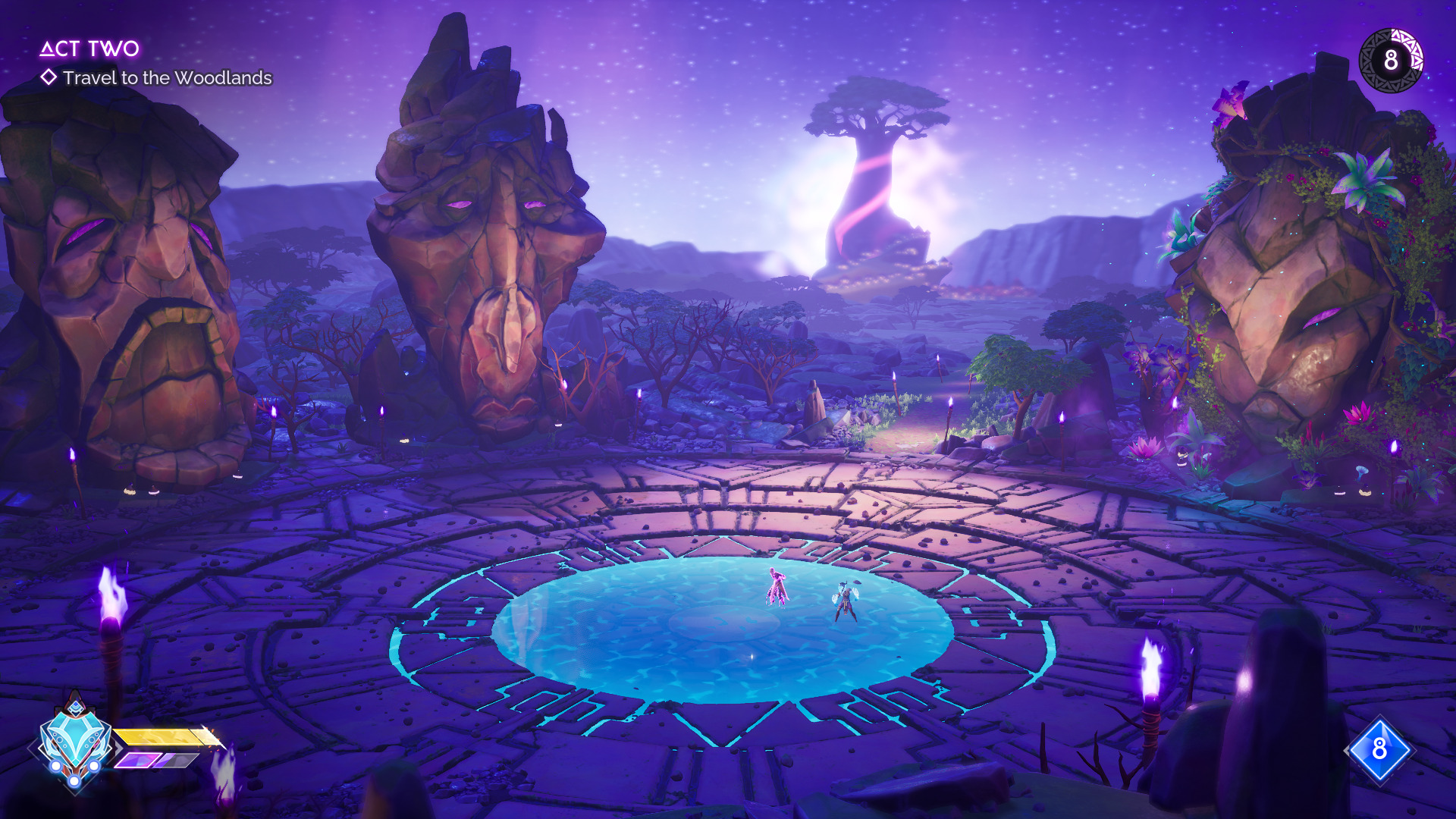
The world of Tales of Kenzera: ZAU is absolutely stunning. It draws design elements and themes from Afrofuturism, which “expresses notions of Black identity, agency and freedom through art, creative works and activism that envision liberated futures for Black life,” as described by the National Museum of African American History and Culture. Tales of Kenzera is also steeped in Bantu mythology, drawing past and future together into one colorful, dynamic game world.
Players start out in the Ikakarumbian Highlands, which feel full of hope and potential, almost as if they are in denial of tragedy, much like Zau. I felt those themes through the warm, sunny backdrops and upbeat music, making it all the more jarring when I entered the Drowning Swamps and found myself in a world of sickly green.
The emotional shifts in the game reflect not only changes in Zau’s journey but also the stages of grief and life. Things begin bright and determined, if a bit naive, but when sickness or danger comes, we have to adapt and look at things through a new lens in order to heal and keep moving forward.
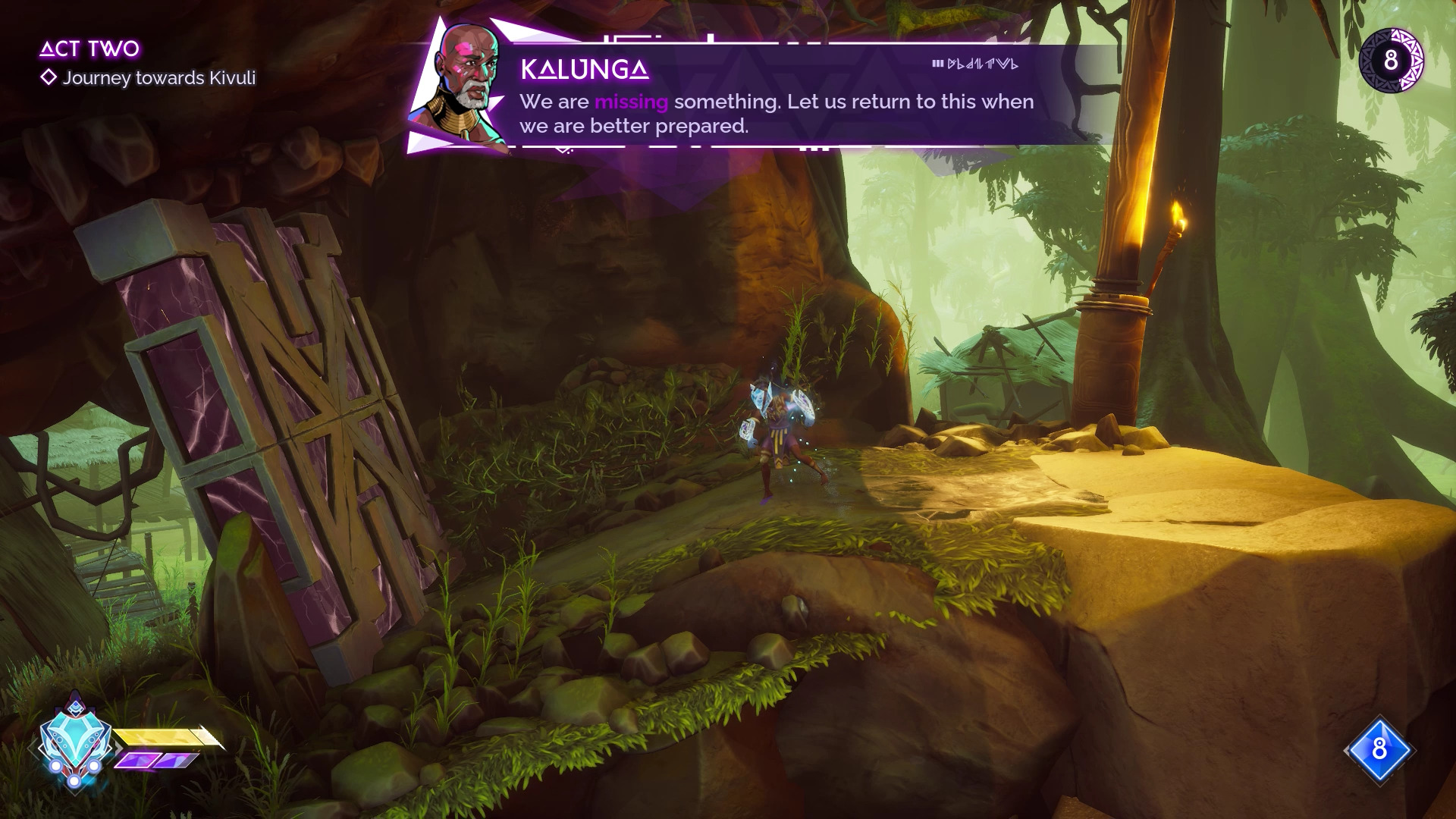
The characters Zau encounters in each biome also reflect the stages of grief and healing and do a great job of bringing the game’s message into focus without feeling heavy-handed. I won’t spoil what that message is, but I will happily admit the game’s finale left me with a tear in my eye, something I’ve only ever experienced with a few other games.
For a fairly short game, Tales of Kenzera has a sprawling map with a lot to see. The layout of the map is designed to encourage and reward exploration. I might run into a gate I couldn’t open at first, forcing me down a detour, but along the way I’d unlock a new ability or find an echo. There are fast travel points, as well, which allowed me to go back to side challenges, like gauntlets, if I didn’t want to tackle them right away or missed them at first.
Tales of Kenzera: ZAU: Performance
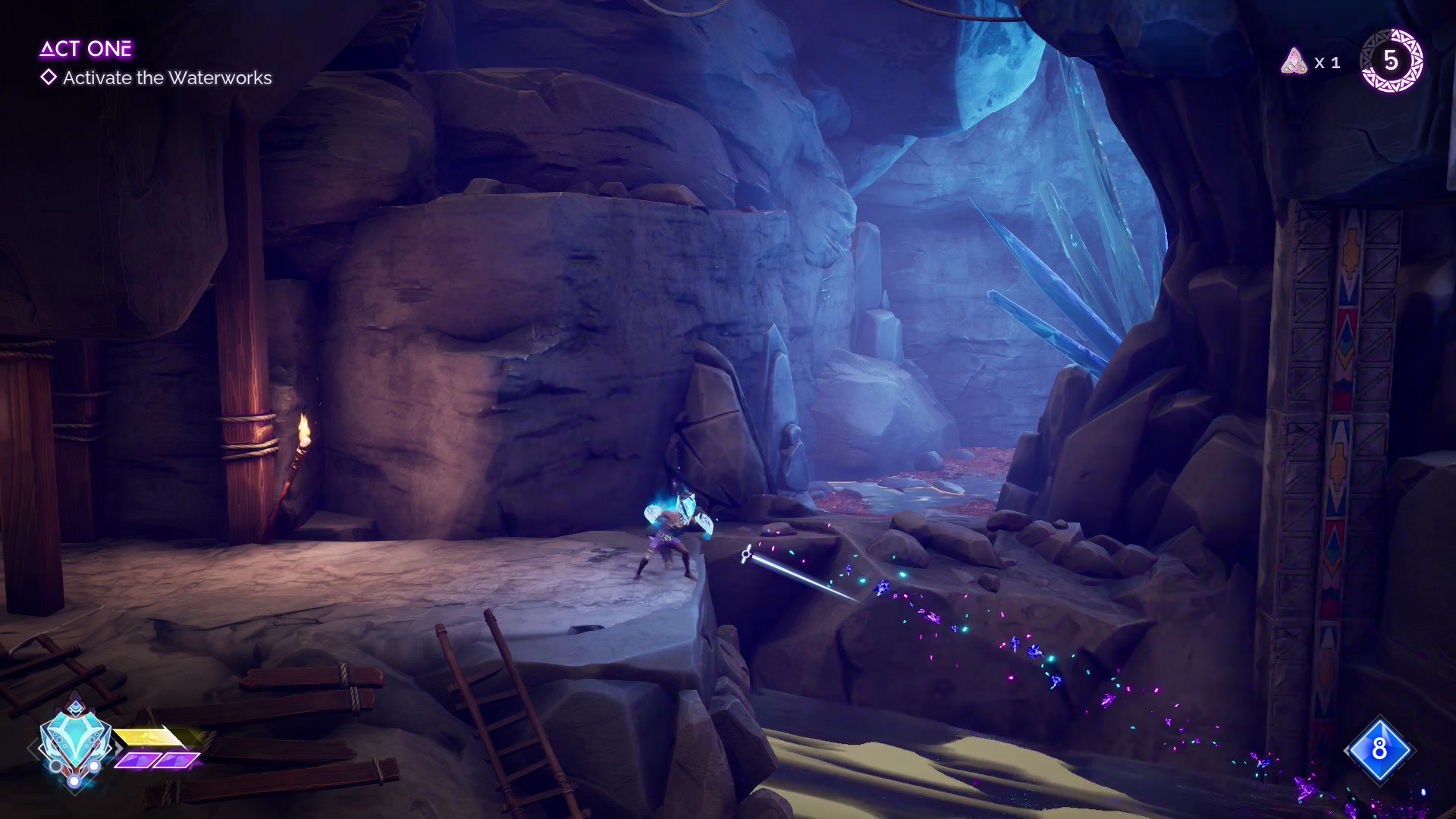
I didn’t have any performance issues with Tales of Kenzera: ZAU. It’s a single-player game and its 2.5D graphics are not particularly resource-intensive. The graphics look fantastic, but you can still run Tales of Kenzera just fine on lower-spec devices.
I used a keyboard and mouse for my PC playthrough, but I switched to my Xbox controller just to see if one was more comfortable than the other. I liked the keyboard better, mostly because I ran into a minor issue while aiming with a controller.
The aim sight jumped between incremental angles, rather than moving smoothly between them. So, ranged attacks with the Mask of the Moon were more difficult with a controller in my experience. Everything else worked just as well as it did with a mouse and keyboard, so it’s a fairly minor drawback that will come down to personal preference for most players.
Bottom line

Tales of Kenzera: ZAU is fast-paced, challenging, and deeply moving, depicting a story about grief set against the backdrop of a world that’s alive with Bantu mythology. While its two main characters are grappling with loss, the world of Kenzera isn’t dark, and the game’s powerful ending will leave players full of hope (and feeling accomplished thanks to some seriously difficult boss battles).
Whether you’re a long-time fan of metroidvanias or you’re new to the platformer genre, this is a game you don’t want to miss. It’s tough but rewarding. The vibrant game world and spectacular soundtrack make Tales of Kenzera an immersive experience that’s unlike anything else in this genre. I, for one, am hoping to return to the world of Kenzera and will be watching closely for a sequel to this stunning debut from Surgent Studios.
You can dive into Tales of Kenzera: ZAU today on PC, Nintendo Switch, Xbox Series X/S, and PS5.

Stevie Bonifield is a freelance tech journalist who has written for PC Gamer, Tom's Guide, and Laptop Mag on everything from gaming to smartwatches. Outside of writing, Stevie loves indie games, TTRPGs, and building way too many custom keyboards.
